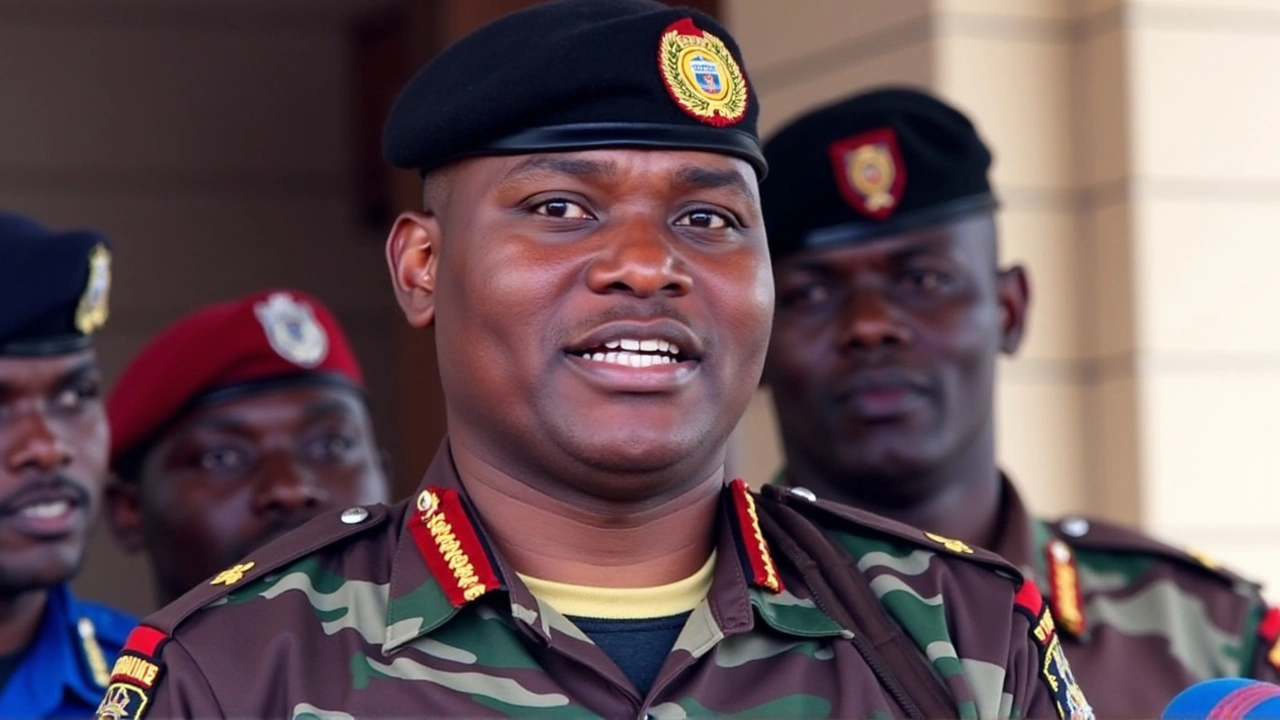Acting IG Gilbert Masengeli Convicted of Court Contempt in High-Profile Case
In a landmark ruling, the High Court in Nairobi handed down a guilty verdict to Acting Inspector General of Police Gilbert Masengeli for contempt of court on Monday, September 9, 2024. This decision came after Masengeli defied a court summons on seven different occasions, triggering a strong message from the judiciary about the importance of compliance with court orders. Justice Lawrence Mugambi, who delivered the verdict, remarked that Masengeli’s actions represented a blatant disrespect for the court’s authority and such conduct could not be tolerated from a public officer.
The roots of Masengeli's contempt charge can be traced back to his repeated failures to appear before the court to provide an explanation regarding the abduction of three individuals: Jamil Longton, his brother Aslam Longton, and well-known activist Bob Njagi. These three men were reportedly abducted by suspected police officers on August 19, 2024, in Kitengela, Kajiado County. Despite the gravity of these allegations and the urgent need for accountability, Masengeli's absence at the court sessions became a contentious issue. Instead of attending himself, Masengeli delegated his Deputy Inspector General of Police, Eliud Lagat, claiming he was preoccupied with security matters in Wajir.
Significance of the Ruling
The ruling is significant on multiple levels. Firstly, it underscores the judiciary's role as a check on executive power, reinforcing the necessity for all public officials to adhere to legal procedures and demonstrate respect for the constitution. Justice Lawrence Mugambi did not mince his words when he highlighted the gravity of Masengeli's actions, stating that the Acting IG held the court 'to ransom' with his continuous defiance. This ruling sets a precedent that even the highest-ranking officers in the police force are not above the law.
Masengeli's excuses for not attending court sessions included various claims about pressing security concerns that required his immediate attention. However, the court found these reasons insufficient, and his repeated absence came to be viewed not as a necessity of his position but as a disrespectful disregard for the legal process. This case has brought to the forefront the issue of accountability within the police force, a topic that has been under scrutiny for years.

The Contentious Abductions
The case's core revolves around the disturbing abduction of Jamil and Aslam Longton and Bob Njagi, three individuals whose disappearance has sparked outrage and calls for justice. According to witness statements and preliminary investigations, the abductions were orchestrated by individuals allegedy affiliated with the police force, a claim that, if substantiated, could significantly damage the reputation of the national police service.
The Longton brothers and Njagi were reportedly taken in broad daylight under circumstances that have left their families and community members in a state of anxiety and fear. Efforts by their relatives to trace their whereabouts have been met with roadblocks, prompting legal intervention. Lawyer Nelson Havi, representing the petitioners, has been vocal in demanding accountability and has played a crucial role in pushing the case forward. Havi's request for a six-month civil prison sentence for Masengeli highlights the seriousness with which the petitioners view the Acting IG’s failure to comply with court orders.
Escalating Developments
Tensions further intensified when it was revealed that the Security of Government Buildings (SGB) and VIP Protection Unit commandant, Lazarus Opicho, was summoned by the court. Opicho was called to account for his actions after it was discovered that he made inquisitive calls to the judge's driver and bodyguard to ascertain the judge's location before a hearing. This incident has been perceived as an attempt at intimidation, adding another layer of complexity to an already charged case.
The upcoming sentencing of Masengeli, scheduled for Friday, September 13, 2024, is highly anticipated. The legal community and the public alike are keenly watching to see what consequences the acting IG will face. The court’s decisive stance serves as a stark reminder that no individual, regardless of their position or power, is exempt from the rule of law.
Repercussions for the Police Force
This case has far-reaching implications for the national police force. For years, the police have been under scrutiny for allegations of misconduct and abuse of power. The ruling against Masengeli brings these issues back into the spotlight, raising questions about the internal oversight mechanisms within the police force and the systemic changes needed to prevent such incidents in the future.
Human rights organizations and civil society groups have welcomed the court’s decision, seeing it as an important victory for justice and the rule of law. They have long been advocating for greater accountability and transparency within the police force, and this case provides a beacon of hope that their calls are being heard. Some experts argue that this could be a turning point, compelling the authorities to undertake meaningful reforms to restore public confidence in the police service.

A Broader Conversation
The case of Gilbert Masengeli is likely to ignite a broader conversation about the role and responsibilities of public officials. At its core, the judgment reinforces a simple yet profound principle: that those in power must be accountable to the people they serve. For the families of Jamil and Aslam Longton and Bob Njagi, the court’s ruling is a step towards finding answers and potentially securing justice for their loved ones. For the police force, it is a call to introspection and reform, a chance to rebuild trust with the communities they are meant to protect.
As society grapples with these complex issues, the hope is that this ruling will inspire other public officers to adhere strictly to legal and ethical standards. The judiciary’s firm stance serves as both a warning and a promise: that the law applies to everyone equally, and that justice will be pursued without prejudice or favor.

Comments